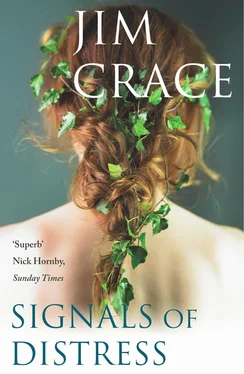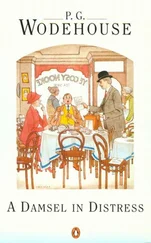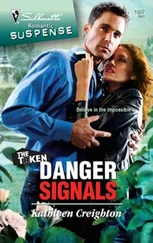My dear Matthias, he had written,
I am arrived in Wherrytown and have sustained an injury at sea during the worst of storms. I am not well enough to travel yet and so I must remain amongst the kelpers here. Already I have seen our agent, Mr Howells, face to face, and we are making progress with the bad news that I bear, though he is not a man of feeling or of judgement. My lodging is tolerable though I must share with sailors. They are Americans, wrecked in the same storm that injured me. Amongst their cargo was an African, a slave. I know you think it is my duty to be at your, my brother’s, side at Smith & Sons, but I would claim a greater duty to a greater Brotherhood. I think it is my task and obligation to serve the sacred cause of Negro emancipation by visiting upon this man the benefits that Mr Wilberforce has brought about in our own land but which, alas, do not yet flourish in America. Despite my deprivations I am convinced of the propriety and fortuity of my coming here. It may be that Smith & Sons are obliged to break the kelping contract with their friends, but I can make amends on both of our behalves by offering the Freedom of this land to a man whose prospects have been nothing more than Slavery and Chains. Do not concern yourself for my well-being.
Aymer gave this second letter to the Tar ’s mate. He waited on the quay for the return of his first, but the mate could find no trace of it. What would it matter if both were delivered to Matthias? Aymer had, after all, relished the final line of the original letter and didn’t wish his brother to be spared. He was invigorated, flushed with his philanthropy and a touch in love. His cheeks were pink with wind and optimism. He would be admirable. He would excel.
At last, he saw the Norrises returning from their walk, arm in arm, along the front. He waved with his free arm and almost ran to meet them with the news that they could share his room and were invited to share his table, too. Katie’s sandy hair was a flapping flag of colour on the sea.
MRS YAPP had baked squab pies, with horse bread and potatoes. Winter cooking.
‘What’s squab?’ asked Captain Comstock. He’d come to collect food for Whip and Otto, but had stayed for warm brandy and kitchen comforts. ‘Fish, fowl or fur?’
‘That depends,’ said George, ‘on what the cook’s got spare.’
‘And what is spare today?’
George prodded the meat off-cuts and bones on the kitchen block, the hardened autopsist. ‘It might be cormorant,’ he said. ‘It could be cat.’ He put his nose into the meat. ‘It in’t fish. And that’s a blessing and a rare thing in this town, to eat a pie that has no fish.’
‘At least we know what it’s not,’ said Comstock.
Mrs Yapp took a handful of grey feathers from the waste, and showed them to the captain. ‘This squab is pigeon,’ she said. ‘There’s apple, bacon, onions, mutton, pigeon. Makes it nice.’ She made a well in the crusts of three pies and broke a raw egg into each. Then she poured in beer. The gravy of the pies steamed like chimneys on a pastry thatch.
‘That’s to still the squabs,’ George said. ‘They’ll be too drunk to fly.’
Comstock sniffed the steam. He couldn’t wait to eat. He’d lived too long on pickles, salted meat and biscuit on the Belle . ‘My dog’d love a bowl of that,’ he said.
‘Your dog? I’ll not bake pies for dogs.’ She gave the captain two chipped bowls. ‘There’s scraps and gravy for the little dog. And bread and pilchards for the black fellow. Will he drink beer?’
‘Best not. His temper’s unpredictable.’
Comstock found his way by lantern light into the upper lane and down the open and bladdery alleyway into the courtyard. He called for Whip and took her and Otto’s food into the tackle room. He felt embarrassed, waiting on the man who had been the Belle ’s galley boy. The two men didn’t speak. Comstock satisfied himself that Otto had recovered from the storm and from the tumbles he had taken. The ankle was mending. He seemed both calm and comfortable. That was a blessing. The last thing that the captain needed, on top of all his other woes, was a riotous and ailing slave. The tackle room would be a decent billet — and a kennel — for a night. Tomorrow was the Sabbath. Captain Comstock would see if there were warmer quarters for Otto, inside the inn perhaps — but he suspected that the Wherrytowners would not welcome an African beneath their eaves. They’d stared and pointed at the man as if he were a creature at a fair. A slave was worthy of more respect than that, so long as he was biddable, and free of vices and diseases. Perhaps it would be for the best if Otto were kept out of sight in the tackle room, away from local eyes and fingers. Matters would improve, he hoped, and Otto could enjoy more latitude once Wherrytown was used to him. So long as he was supervised, his muscle would be useful in the restoration of the Belle . Comstock watched his man and dog eat for a while and then he shut the bolts on them, though Whip could get out if she wanted to. There was a cat hole in the door, and Whip was hardly larger than a cat. He hurried back to squabs and Alice Yapp. He had an appetite for both.
THE INN PARLOUR and the adjacent commercial room were rarely busier. Eighteen men and Katie Norris were waiting for their dinners. Aymer’s invitation to the Norrises to share ‘his’ table had been too optimistic. There were two tables only, the large oak formal table in the parlour — waited on by Mrs Yapp herself — and a softwood trestle in the commercial, reserved for the more raucous of the Americans and served by George. Everybody shared, though Katie had been spared the pressing thighs and invasive elbows of her fellow diners. She sat at the head of the parlour table on a seat with a straight, spindled back, and a laced cushion, much like a governess with eight slow learners. She was the closest to the fire. She felt both vulnerable and powerful, with such a retinue. All the men had narrow places on backless benches. Aymer Smith, with one arm strapped to his chest in its sling, could hardly find room to place his elbow on the table, but he was in no mood for complaining. His life had never been as purposeful as this. Even the unruliness of the Americans, even the wooden plates and earthenware cups (despite the evidence of glass and china in Mrs Yapp’s buffette), could not disturb his feelings of well-being.
Here were two universes, the solemn and the jubilant, the reverential and the scurrilous, connected by an open door. The ten young ‘castaways’ (as they had named themselves) in the commercial were intemperate with beach-fever. They hadn’t spent a night ashore since leaving Wilmington, Carolina, with cotton for Montreal in mid-September. Now that their cargo east — the four hundred cows — had been prematurely landed, they would not sleep at home again until the westward cargo of emigrants from Wherrytown, Fowey and Cork had been shipped to quarantine at Grosse Isle in the St Lawrence and — the fourth side of the merchant square — a consignment of Canadian logwood taken south to Wilmington. They’d be hammocked for ten more weeks at least, curled in sleep like prawns — if, that is, the Belle was saved. If not, who knew when or how they’d see their families again? They were becalmed and idle and, almost, bored. Boredom, with such unpolished turbulents as these, would turn to mischief given half a chance — with women, money, fists. Their heartiness would sour unless the Belle was soon back at sea.
Already there were one or two who’d seen a chin they’d like to punch, a silver timepiece or a pair of boots they’d like to lift, a mouth they’d like to kiss. But for the moment, over squabs, they were content to be at ease. At least there were no midnight watches to be kept. They’d not be called away from their food to pull in canvas. The sea would not upset their plates nor put a reckless angle on their drinks. They — almost — could forget the sea, and make the most of being safe and far from home, except they all had boat cough and their throats were never clear. They raised their drinks to the Belle (‘Long may we sail in her!’) and to America and to baffling ‘George, the parlourman!’ who kept their cups topped with rough beer and wine. They smoked their rations of Virginia. Soon they were singing in praise of squabs and calling out what fine pigeons Mrs Yapp and Katie were. ‘Would the ladies care to dance or sing a verse?’ If only Katie were a flirt! If only Mrs Yapp had Katie’s hair and throat! What then?
Читать дальше












